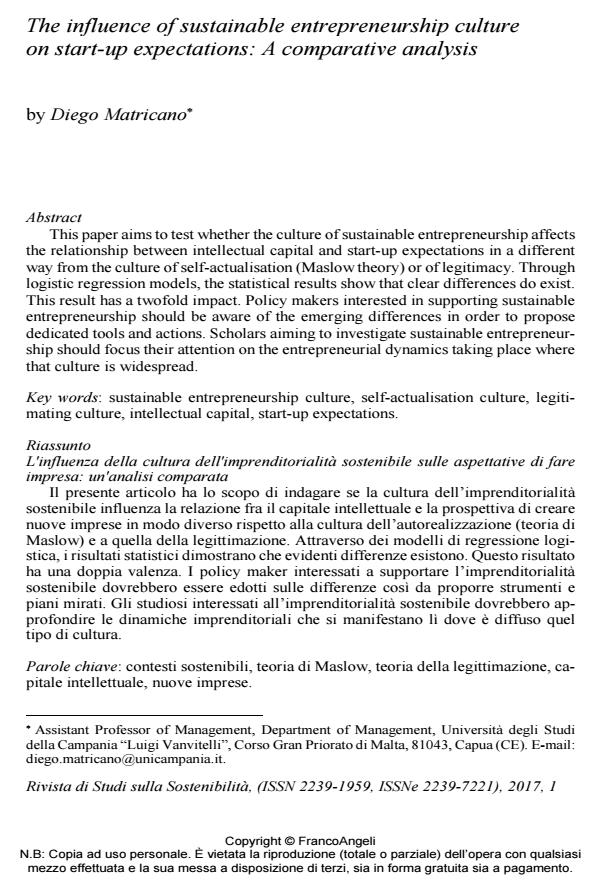The influence of sustainable entrepreneurship culture on start-up expectations: A comparative analysis
Journal title RIVISTA DI STUDI SULLA SOSTENIBILITA'
Author/s Diego Matricano
Publishing Year 2017 Issue 2017/1
Language English Pages 19 P. 71-89 File size 227 KB
DOI 10.3280/RISS2017-001006
DOI is like a bar code for intellectual property: to have more infomation
click here
Below, you can see the article first page
If you want to buy this article in PDF format, you can do it, following the instructions to buy download credits

FrancoAngeli is member of Publishers International Linking Association, Inc (PILA), a not-for-profit association which run the CrossRef service enabling links to and from online scholarly content.
This paper aims to test whether the culture of sustainable entrepreneurship affects the relationship between intellectual capital and start-up expectations in a different way from the culture of self-actualisation (Maslow theory) or of legitimacy. Through logistic regression models, the statistical results show that clear differences do exist. This result has a twofold impact. Policy makers interested in supporting sustainable entrepreneurship should be aware of the emerging differences in order to propose dedicated tools and actions. Scholars aiming to investigate sustainable entrepreneurship should focus their attention on the entrepreneurial dynamics taking place where that culture is widespread.
Keywords: Sustainable entrepreneurship culture, self-actualisation culture, legitimating culture, intellectual capital, start-up expectations.
Diego Matricano, The influence of sustainable entrepreneurship culture on start-up expectations: A comparative analysis in "RIVISTA DI STUDI SULLA SOSTENIBILITA'" 1/2017, pp 71-89, DOI: 10.3280/RISS2017-001006